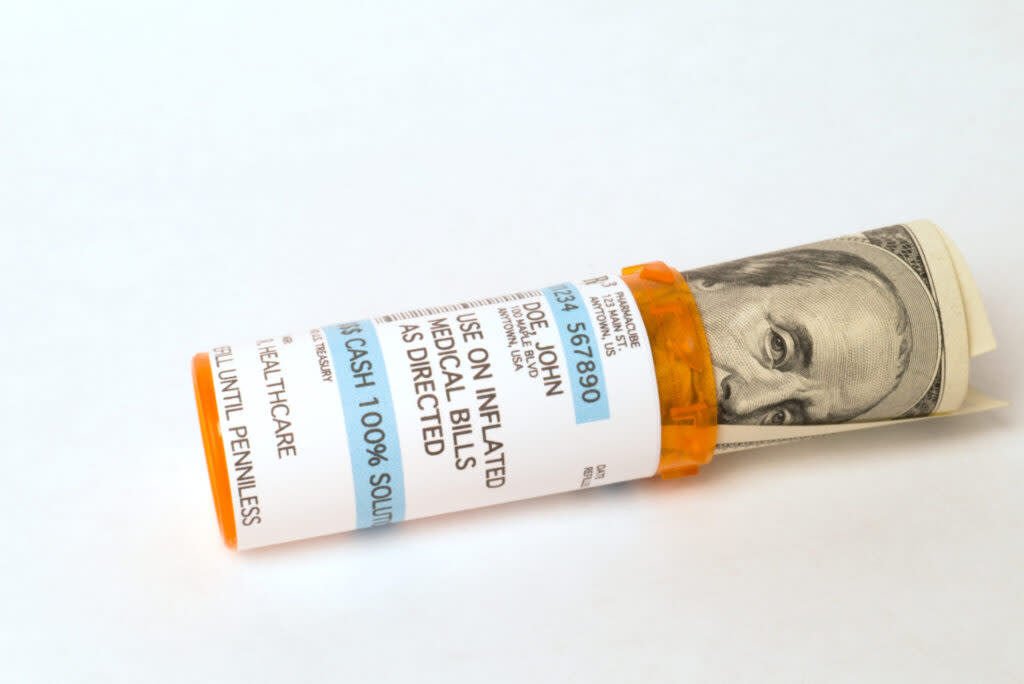Policymakers should support patients over profits in Louisiana

Getty Images
Every year, more than 26,000 Louisianans are diagnosed with cancer. Our state has the sixth-highest rate of new cancer diagnoses, and more than 9,000 Louisianans die from cancer each year.
As the chief executive officer of Pontchartrain Cancer Center, I am frustratingly familiar with the cost of cancer care. In the U.S., the initial cost of cancer care is more than $40,000, and the continuing cost of cancer care is more than $5,000. In a cancer patient’s last year of life, the cost of care is more than $100,000.
And this astonishing cost comes nowhere near the impact on the family as they navigate a cancer diagnosis, or the loss that families bear when they lose a loved one to the fight against cancer. When cancer treatment is unaffordable, care is delayed, which leads to greater treatment problems, higher costs of long-term care, and a lower chance of survival.
The need for more affordable access to treatment and care is not only real for cancer patients, but also for all Louisianans, with U.S. News and World Report ranking Louisiana in the bottom five states for health care in the country.
Louisiana has made significant strides to regulate the business practices of pharmacy benefit managers (PBMs) and health insurance companies, but we must address the significant rebates and discounts that PBMs and health insurers negotiate when they purchase medicine from drug manufacturers — and ensure these are a patient benefit.
Rather than using these savings to lower patients’ out-of-pocket prescription costs, PBMs and insurance companies pocket the savings as profit, often overcharging patients for life-saving and life-sustaining treatments. As a result of this practice, many insured patients in Louisiana are paying nearly double what their insurers are paying for the same medicines.
While PBMs may sound like obscure healthcare entities that are far removed from patients, the three largest PBMs — Express Scripts, CVS Caremark and Optum Rx — dominate more than 85% of the market. And all three of these PBMs are owned by large health insurance companies that dictate the patient experience: Express Scripts is owned by Cigna, Optum Rx is owned by UnitedHealthcare, and CVS Caremark is owned by CVS Health, which owns both Aetna and CVS Pharmacy.
These companies control what medicine patients can access, how much patients pay for it and where they can pick it up. When Louisiana’s policymakers neglect regulating the practices of PBMs and health insurers, they are putting the profits of large corporations over the needs of Louisiana patients and their healthcare.
Senate Bill 347 would require PBMs and insurance companies to share the savings they receive from negotiated rebates and discounts directly with patients at the point-of-sale, lowering out-of-pocket costs.
These rebates and discounts are significant, totaling over $230 billion in 2021 alone. Given these significant profits, it’s no surprise large health insurers and PBMs oppose this legislation and are threatening an increase to health insurance premiums if Louisiana passes this legislation. But we know that won’t happen based on the evidence from three other states that have already implemented share-the-savings bills — none of which have seen any increase to premiums.
This is also a policy voters nationwide support. In a nationwide poll by Morning Consult, 88% of adults agree that policymakers should prioritize lowering out-of-pocket costs, and when presented with two choices, over half of the respondents preferred lower out-of-pocket costs to lower monthly premiums. With Senate Bill 347, Louisiana joins 18 states that have similar proposed legislation — legislation that would save consumers in Louisiana up to $1,000 a year in out-of-pocket costs.
It’s time for Louisiana to prioritize patients, not large corporations, and lower out-of-pocket health care costs in Louisiana.
The post Policymakers should support patients over profits in Louisiana appeared first on Louisiana Illuminator.

